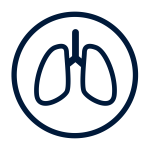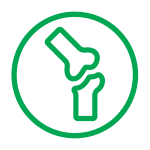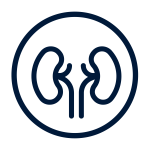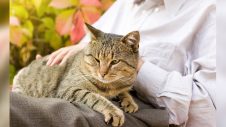The importance of regular wellness checks
Our pets age more rapidly than we do – the common rule of thumb is 7 animal years for every human year and their risk of developing disease or illness increases as does the possibility that the illness or disease will rapidly progress. So what should you look for in your senior “petizen”?
 Eyes
Eyes
Pets can develop diseases of the eyes such as glaucoma, cataracts or dry eye.
Glaucoma is an increased eye pressure leading to blindness due to the death of the optic nerve. In the early stages very red, painful eyes develop but is treatable is detected very early on with a thorough vision assessment & eye examination by your veterinarian.
Cataracts:
Cataracts are due to lens changes in the eye & are common in ageing dogs or in those with diabetes. The most common sign is a blue/grey look to the centre of the eye which will lead to blindness. With early detection & regular vision assessments your veterinarian & yourself can monitor if & when surgery is required.
Dry Eye:
Dry eye is an autoimmune condition in certain breeds where decreased tear production reduces lubrication on the surface of the eye. This causes a thick sticky discharge to build up around the eye & surface of the eye to ‘scar’ affecting vision & possibly ulceration. Regular eye examinations will indicate if your pet is at risk of this disease.
 Heart & Lungs
Heart & Lungs
Pets can develop conditions such as bronchitis, emphysema, pneumonia & cardiac disease.
Cardiac Disease
With an ageing heart the valves & chambers become less functional causing heart murmurs or a swollen heart. This means the heart works less efficiently causing breathlessness, cough, bloated belly or decreased exercise tolerance. Regular auscultation (listening with a stethoscope) will give your vet an early warning of cardiac disease.
Bronchitis, Pneumonia, Emphysema:
As the lungs age, the tissue that makes the lungs becomes less pliable (“stretchy”) meaning the lungs can’t expand correctly or the tubes (trachea or bronchi) lose their shape. This causes cough, breathlessness or lack of energy. Again regular auscultation or X-rays can give early warning or respiratory conditions.
 Joints
Joints
Senior pets can develop conditions such as arthritis or previously undiagnosed conditions such as hip or elbow dysplasia could become apparent.
Arthritis:
Most large breed dogs over seven years will develop this with painful, swollen joints & an unwillingness to move or sit being the most common symptoms. Smaller breed dogs & cats can also develop this condition. Regular examinations with your vet will indicate if or when treatment will be required for arthritis.
Hip or Elbow dysplasia:
These are conditions which develop when your dog is young but may not become apparent until the joint cartilage starts to “wear out”. Again painful swollen elbows or an unwillingness to sit or lay down are the most common symptoms for these conditions. Regular monitoring & examinations will give your vet early indication if these conditions are progressing.
 Organs
Organs
Senior cats should be regularly monitored for kidney failure & diabetes. Senior dogs should have regular checks to ensure their liver, kidneys & adrenal glands are working effectively.
Kidney Failure:
Increased thirst and weight loss are the first symptoms of kidney failure along with smelly breath, mouth ulcers and nausea as the disease progresses. Regular urine & blood testing together with routine examinations will give an early indication to this disease. Early intervention greatly improves quality of life.
Diabetes:
Increased thirst & weight loss again are early indicators along with recurrent urinary tract infections & increased appetite. Regular urine & blood testing with routine examinations will give an early indication to this disease. Early intervention greatly increases prognostic indicators with higher rates of remission especially in cats.
Liver Disease:
The liver stops processing certain waste products which cause nausea, lack of appetite & possibly seizures. Regular routine blood testing can give an early indication of decreased liver function.
Adrenal Disease:
The adrenal gland produces certain substances which help regulate metabolic processes. If it produces too much or too little the liver, heart, skin, hair coat & muscles can be affected leading immature ageing processes, diabetes & liver failure. Routine blood testing can give indications as to the function of the adrenal gland.
 Lumps
Lumps
Pets can develop lumps on or under the skin which can become cancerous & spread to the lymph nodes or internal organs.
 Thyroid
Thyroid
Senior cats are at risk of developing an overactive thyroid gland which can lead to vomiting, weight loss & heart problems. Regular palpation of the neck area & blood monitoring can lead to early detection of this condition.
As our pets age it is imperative for them to have regular contact with their veterinarian who will devise a plan for periodic examinations & monitoring with blood & urine tests. This will allow for our well loved pets to grow old gracefully.
To book a senior pet wellness check, contact your local Greencross Vets today!

 Greencross Vets
Greencross Vets 









